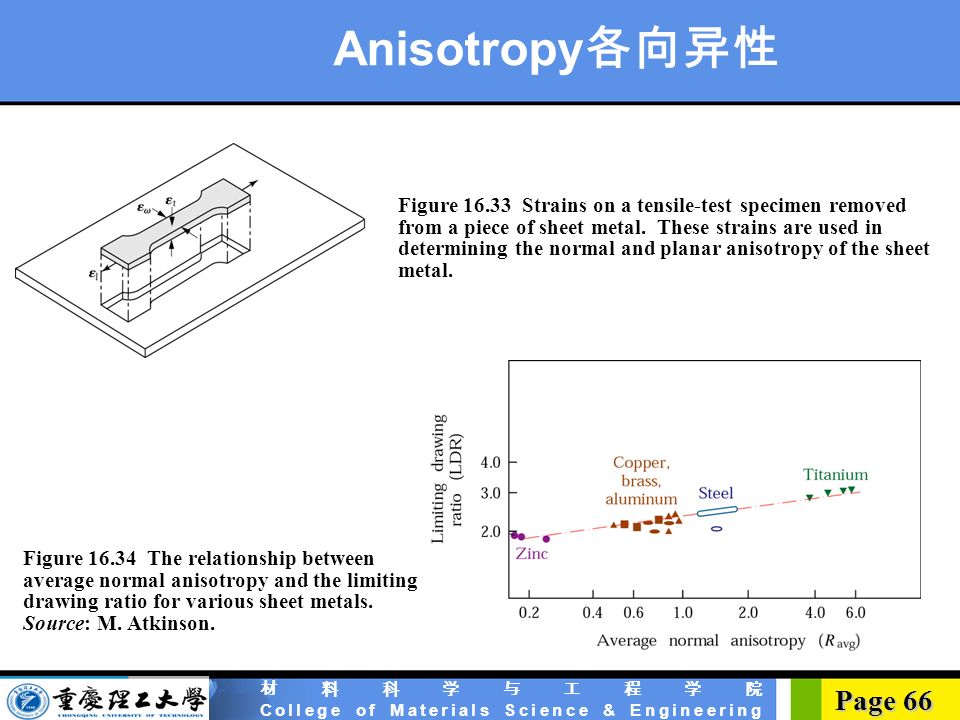A model for technology transfer mat.
Anisotropy in sheet metals.
The variation of their plastic behavior with direction is assessed by a quantity called lankford parameter or anisotropy coefficient 4 1.
During rolling the sheet develops anisotropy both in the plane of the sheet called planer anisotropy as well in the thickness of sheet called anisotropy ratio.
Anisotropy includes elastic and plastic anisotropy.
Due to their crystallographic structure and the characteristics of the rolling process sheet metals generally exhibit a significant anisotropy of mechanical properties.
Anisotropy in sheet metals.
For sheet metals the r values are normally determined for three different directions of loading in plane 0 degrees 45 degrees and 90 degrees to the rolling direction and denoted by r 0 r 45 and r 90 respectively and the normal or average r value r m or normal anisotropy is measured as follows.
The lankford coefficient also called lankford value r value or plastic strain ratio is a measure of the plastic anisotropy of a rolled sheet metal this scalar quantity is used extensively as an indicator of the formability of recrystallized low carbon steel sheets.
Dr r narayanasamy anisotropy of sheet metals.
3 pp1677 1972 6 papadakis ep et al development of an automatic ultrasonic texture instrument and its transition from laboratory to market.
5 davies gt and goodwill dj and kallend rs elastic and plastic anisotropy in sheets of cubic metals met.
In cold rolled sheets elastic deformation is much smaller compared with the plastic deformation so only the anisotropic plasticity is nor mally considered.
The type of plastic anisotropy usually desired in sheet metal forming is that the sheet is isotropic in the plane and.
The method includes the optical measurement of strains on a flat specimen with a varying cross section and an inverse parameter identification scheme which minimizes the differences between the numerical simulation results and the experimental measurements by using.
After a brief review of classic isotropic yield functions recent.
This paper reviews the most recent models for description of the anisotropic plastic behavior and formability of sheet metals.
Anisotropy in sheet metal can be useful in deep drawing and other forming processes.
Yield locus for a biaxial plane stress condition the von.
A method to include the distribution of strains in the identification of the planar anisotropy of sheet metals is proposed.

